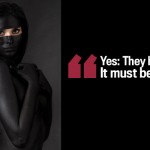So I’m sure that pretty much everyone has, by now, seen Foreign Policy magazine’s recent “Sex Issue,” which looks at issues related to gender, sex, and politics in various countries. The article that’s gotten the most attention is Mona Eltahawy’s piece “Why Do They Hate Us?,” in which Eltahawy writes about the many forms of violence against women in Arab countries.
We’ve got some responses from several MMW writers coming, today and tomorrow, but to start off, here’s a roundup of some of the (many, many) other reactions to Eltahawy’s article. There are many missing from this list; feel free to link and quote your favourites in the comments.

Foreign Policy itself published six different responses. On one side, Hanin Ghaddar contends that “Mona Eltahawy is right. They hate us. But they also fear us, as much as our dictators feared us. And we can break them, as much as we broke and will keep on breaking our tyrants.” Leila Ahmed, on the other hand, writes us that “I found almost every paragraph of Eltahawy’s essay similarly troubling as, again and again, broad brushstrokes and sweeping generalizations erased subtle nuances and garbled and swept aside important differences.” In one of my favourite responses to the whole thing (because oh dear God, what were they thinking??), Naheed Mustafa focuses on the image that accompanied the FP articles, a naked woman covered in black body paint, except for her eyes:
Here’s a quick reenactment of me reading Mona Eltahawy’s cover essay as my eyes involuntarily (I swear!) flit over to Nekkid Burqa Woman: “So, yes, women all over the world have problems — BOOBS! — yes, the United States has yet to elect a female president — BOOOBS! — and yes, women continue to be objectified in many “Western” countries — BOOOOOBS!” And so on. […]
Nekkid Burqa Woman is, in fact, so common that she doesn’t even shock or provoke anymore. Her image simply elicits, in the language of the Internet, a “Really, Foreign Policy? Really?” The covered-yet-naked-yet-covered Unknown Brown Woman is all over the place. You can find her on book covers and in movie trailers. You’ll see her used in making the case for war and you’ll see her used in making the case for jihad.
The image, in fact, works against the essay. It belies the nuance and the breadth of the writing by reducing the subject to one easily consumable image — an image that doesn’t even speak to the kind of women Eltahawy is writing about.
Samia Errazzouki at Al-Monitor also talks about the cover image, which she “could not get… out of my head long enough to even begin reading Eltahawy’s article.” But she does, apparently, manage to read the article, and as she explains,
“The title sets off an alarm: the use of the first-person-plural. The first-person-plural can be appropriately used when the speaker has been elected to speak on behalf of the group they are speaking on behalf of. In this case, the “They” being Arab societies and “Us” being Arab women. Eltahawy ’s self-appointed representation of Arab women is neither professional nor accurate. While I sincerely value the freedom of self-expression and have not one single problem with her expressing her views, doing so on the behalf of all Arab women is enraging.”
In other responses to Eltahawy’s article, Sherene Seikaly and Maya Mikdashi at Jadaliyya write that Foreign Policy‘s decision to look at sex and gender is “commendable, but that “despite the editors’ good intentions, however, Foreign Policy disturbingly reproduces much of the dominant and sensationalist discourse about sex in the Middle East.” They conclude that,
“The battle against misogyny does not follow a “men hate women” formula. It cannot be reduced to a generic battle of the sexes spiced with a dose of Islam and culture. It cannot be extracted from the political and economic threads that, together with patriarchy, produce the uneven terrain that men and women together navigate. It is these lessons that one would have to engage before meting out an indictment about the politics of sex, much less envisioning a future of these politics. There is no one answer because there is no single culprit, no single “culture” or “hatred” that we can root out and replace with “tolerance” or “love.” Similarly, the absence of a sustained and critical attention to sex and gender cannot be solved, syllabus style, by a separate glossy special “Sex Issue,” the content and form of which reproduce what it purports to critique.”
Max Fisher at The Atlantic asks,
“But is it really that simple? If that misogyny is so innately Arab, why is there such wide variance between Arab societies? Why did Egypt’s hateful “they” elect only 2 percent women to its post-revolutionary legislature, while Tunisia’s hateful “they” elected 27 percent, far short of half but still significantly more than America’s 17 percent? Why are so many misogynist Arab practices as or more common in the non-Arab societies of sub-Saharan Africa or South Asia? After all, nearly every society in history has struggled with sexism, and maybe still is. Just in the U.S., for example, women could not vote until 1920; even today, their access to basic reproductive health care is backsliding. We don’t think about this as an issue of American men, white men, or Christian men innately and irreducibly hating women. Why, then, should we be so ready to believe it about Arab Muslims?”
Several of the responses to Eltahawy’s piece critiqued particularly the way that it was framed. For example, as Ayesha Kazmi at American Paki claims,
“The problem is not that women like Mona are openly speaking out against the abusive systems in the Arab and Muslim world. Rather, it is that the very private domestic problems in Arab and Muslim families have become hyper politicised and subject to political misappropriation by politicians. In the United Kingdom, Prime Minister David Cameron used the very sensitive issue of forced marriages and honour killings to tout the European defence and security industries at the Munich Security Conference in February of 2011, to justify the exponential increase of surveillance and the militarisation of Britain. English Defence League (EDL) sympathisers then use these cases to illustrate why they want Britain to close its borders to immigrants from the Muslim world and to justify hateful protesting in Muslim communities. Too many Muslim women have told me that they would rather remain silent than open up and potentially risk the possibility of providing the EDL more fuel. In short, the politicisation of domestic abuse and violence against Muslim women have made them all the more vulnerable and have in some instances, prevented them from seeking much needed recourse.”
At The Arabist, Parastou Hassouri looks at how both the original article by Eltahawy and the reactions it provoked “get caught in the same circular debates that feminist theorists have been trying to address for some time, and highlight the significance of two theories in particular: intersectionality and the double-bind.” She argues that
“Instead of personal attacks, which are unproductive, and criticisms that do not address the substance of her arguments, it would have been more satisfying to see more commentators engage El Tahawy on the actual merits of her arguments and the underlying causes for women’s situation in the Middle East. To do so, both sides should bear in mind the role that intersectionality and the double bind play and learn from the experience of other feminists who have also dealt with these issues.”
And in case that didn’t provide you with enough reading material for the next month, here are a few more:
Nesrine Malik, at The Guardian‘s “Comment Is Free” page, arguing that “it’s not that simple;” there’s more going on than just Arab men hating women.
Monica L. Marks, at the Huffington Post, labels Eltahawy as one among many “native informants” who confirm stereotypes about Muslims and Arabs.
Jehanzeb of Muslim Reverie brings together several different responses, including MMW’s Sana Saeed.
… and about fifty thousand others. What were your favourite responses that we’re missing here?












